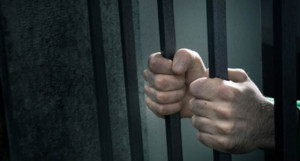 For the past several days, the shooting of Walter Scott by South Carolina police officer Michael Slager has dominated headlines.
For the past several days, the shooting of Walter Scott by South Carolina police officer Michael Slager has dominated headlines.
A video of the shooting shows Slager, who has been charged with murder, shooting Scott eight times after he fled from his vehicle after being stopped.
Like several other police shootings that have garnered national media attention, the incident has created a storm of controversy. While conflicting accounts make it impossible to determine what really happened, the incident has drawn attention to how harsh South Carolina’s punishments are for those who owe child support payments.
According to NBC News, Scott owed more than $18,000 in child support and had a bench warrant out for his arrest at the time of the shooting.
Scott had long struggled to pay child support. Court records show that in late 2008, he spent six months in jail over $6,800 in back child support. He also spent single nights in jail in both 2011 and 2012 for missed payments.
In an interview with TODAY, Scott’s parents said they believed the reason their son fled from Slager is because he feared being sent to jail again over the missed payments.
“I believe he didn’t want to go to jail again,” Walter Scott Sr. said. “He just ran away.”
What is also known is that Scott had previously sought help to catch up on his child support payments by entering the Father to Father project, a North Charleston-based program that seeks to help dads reconnect with their children and make up missed payments.
Again, it’s impossible at this point to know Scott’s motives or to determine Slager’s guilt or innocence. But South Carolina’s punitive manner in which it reprimands parents for missing payments is reality.
The modern child support system around the country is inherently flawed. However, the situation is even worse in South Carolina.
An MSNBC investigation revealed that it takes just five days of a non-custodial parent falling behind on a payment to result in a civil contempt hearing that could result in up to a year of jail time. Generally, there is no set number of days in which a debtor automatically faces a contempt hearing.
Unlike some states, South Carolina does not allow any modifications to the amount owed if the parent is incarcerated. That results in many parents leaving jail and facing tens of thousands of dollars of debt that has accumulated while they were incarcerated.
Libba Patterson is a law professor at the University of South Carolina and a former director of the South Carolina Department of Social Services. She has been active in an effort to reform the way in which the state punishes those who owe child support.
In a recent story for the Huffington Post, Patterson explained to editor Christopher Mathias how dire the situation is in the state. Take a look at some of the startling statistics she laid out:
- According to a 2009 survey of South Carolina county jails, one out of every eight inmates, or 13.2 percent of the inmate population, was in jail for contempt of civil court for falling behind on child support payments. The number was 15 percent in Charleston County, where Scott owed his support.
- A 2010 study revealed that 98 percent of parents being held in contempt for non-payment of child support did not have legal counsel.
- Ninety-five percent of parents held in contempt were sentenced to jail, with an average sentence of three months.
- Seventy-five percent of the parents were currently or previously unemployed or having difficulty finding work.
Patterson previously penned a brief supporting Michael Turner, who in 2008 appealed a court’s decision to send him to jail for failing to pay child support. He argued his constitutional right to due process was violated since he did not have legal counsel during the civil contempt hearing. (South Carolina is one of just five states that refuse legal representation to indigent child support debtors.)
The case went all the way up to the Supreme Court, which in 2011 ruled in a 5-4 decision that the right to counsel applied only to criminal cases.
So to summarize, when someone accused of criminal action faces any sanctions from the state, they have the right to a state-appointed attorney if they can’t afford one themselves. But no right exists for a parent accused of owing child support.
All of this leads to, as Patterson put it, “a modern day debtors’ prison for poor noncustodial parents who lack the ability to pay support.”
Perhaps most frustrating about all of this is the fact that federal data shows absolutely no evidence that these punitive measure work at all. South Carolina is below the national average in every measure of how effectively it collects child support funds.
It will take months to uncover the real facts of the Walter Scott shooting. That the South Carolina child support system, and many others around the country, drives low-income parents into desperate and often hopeless situations is already crystal clear.


One comment on “Walter Scott And The Problem With Child Support”